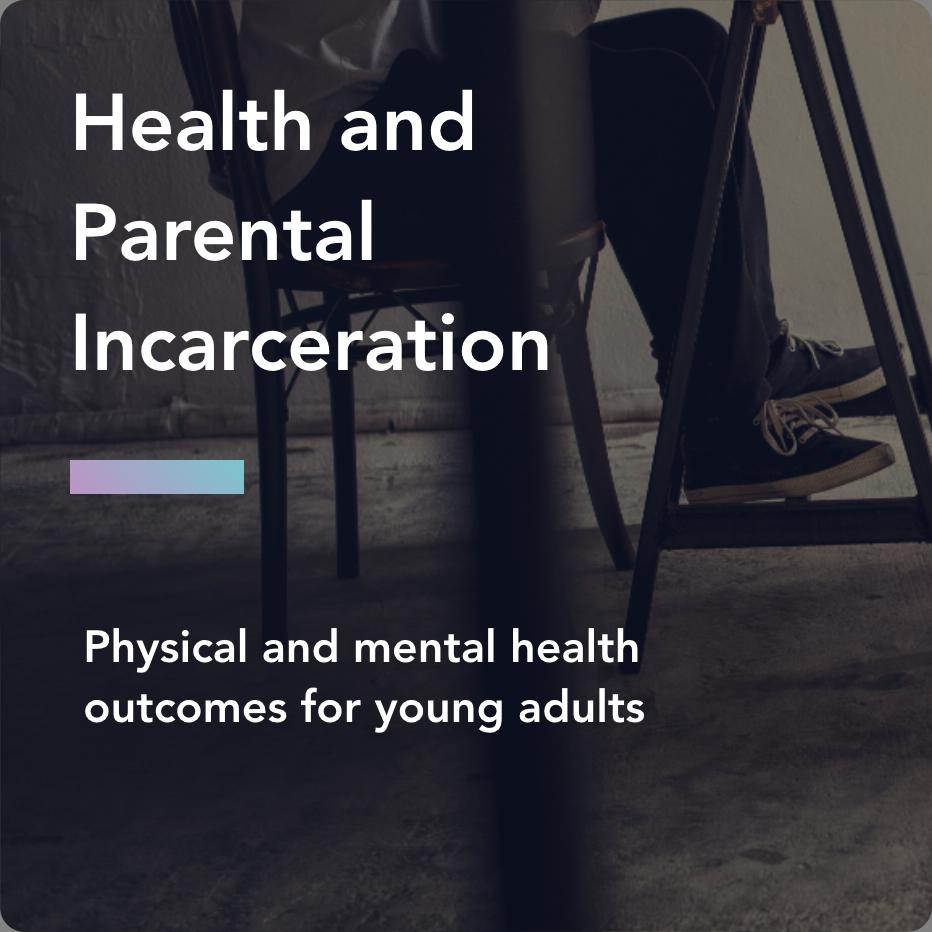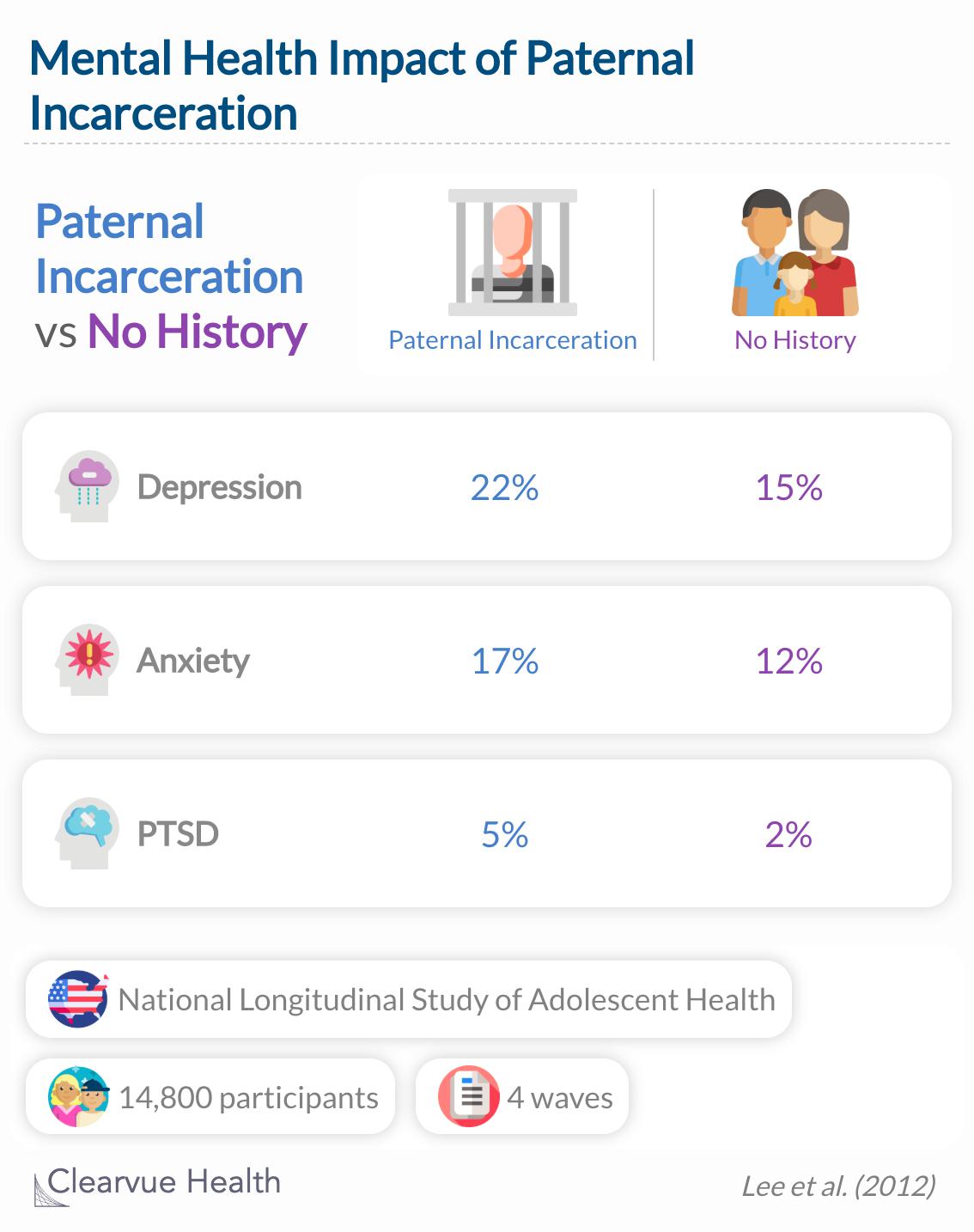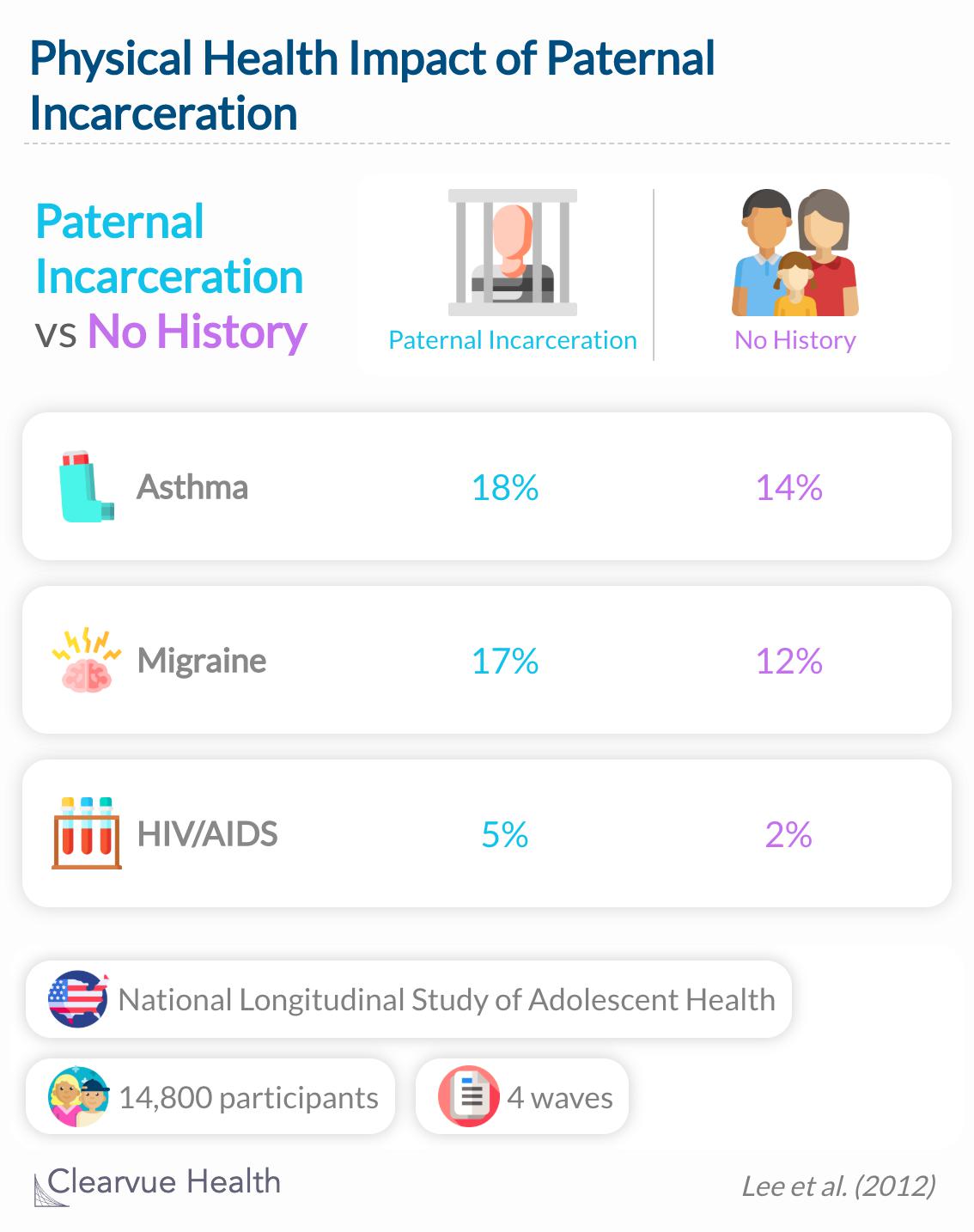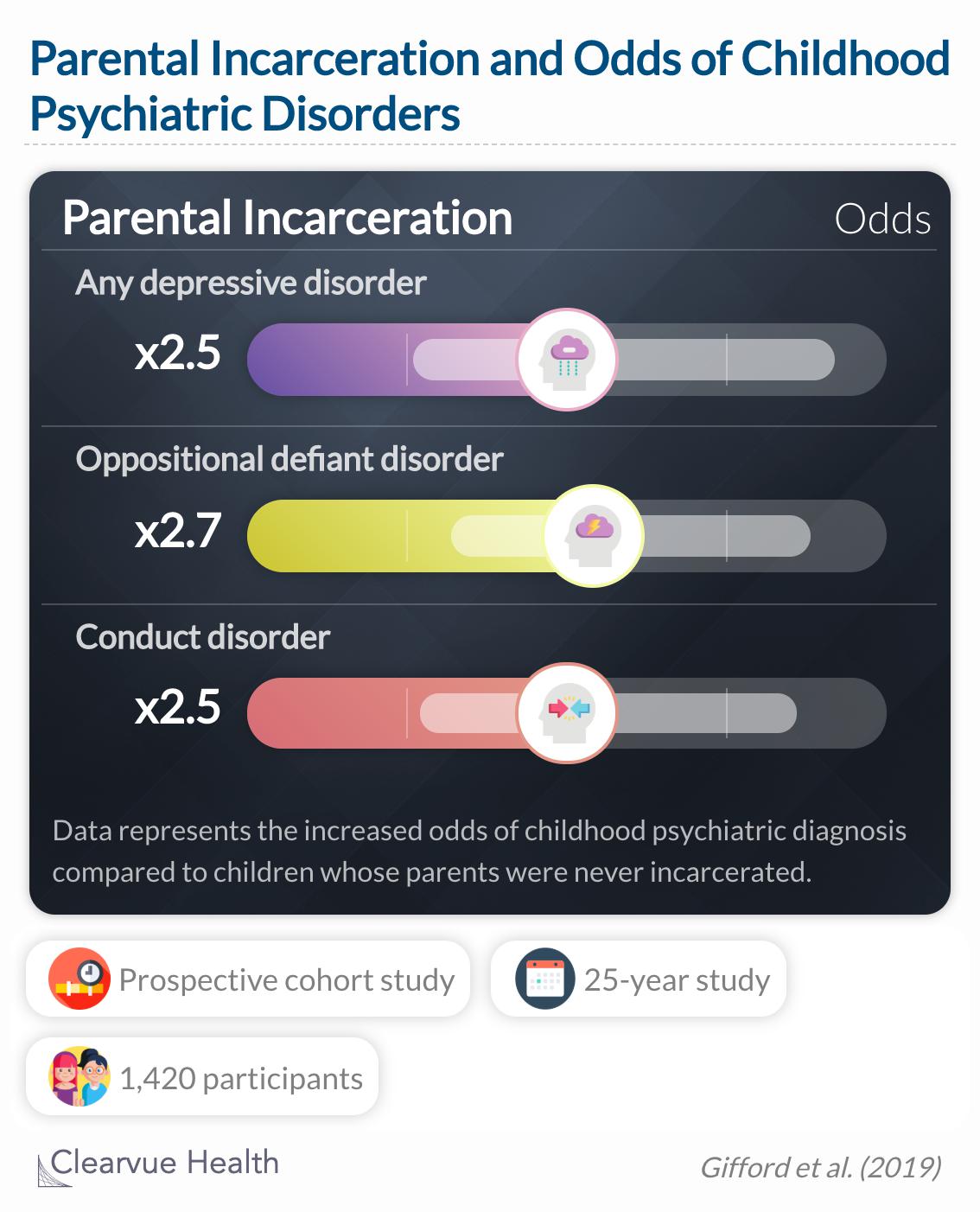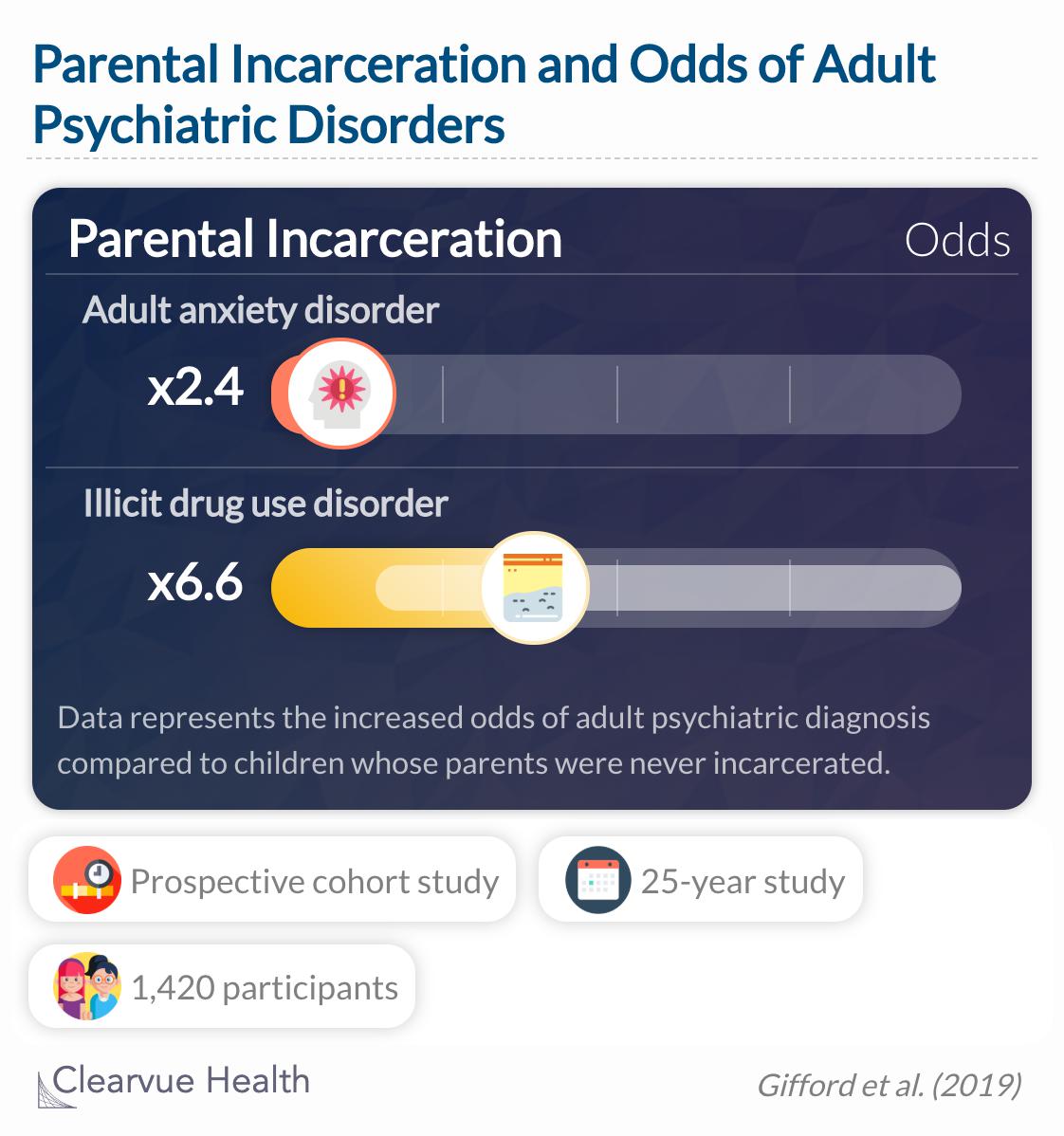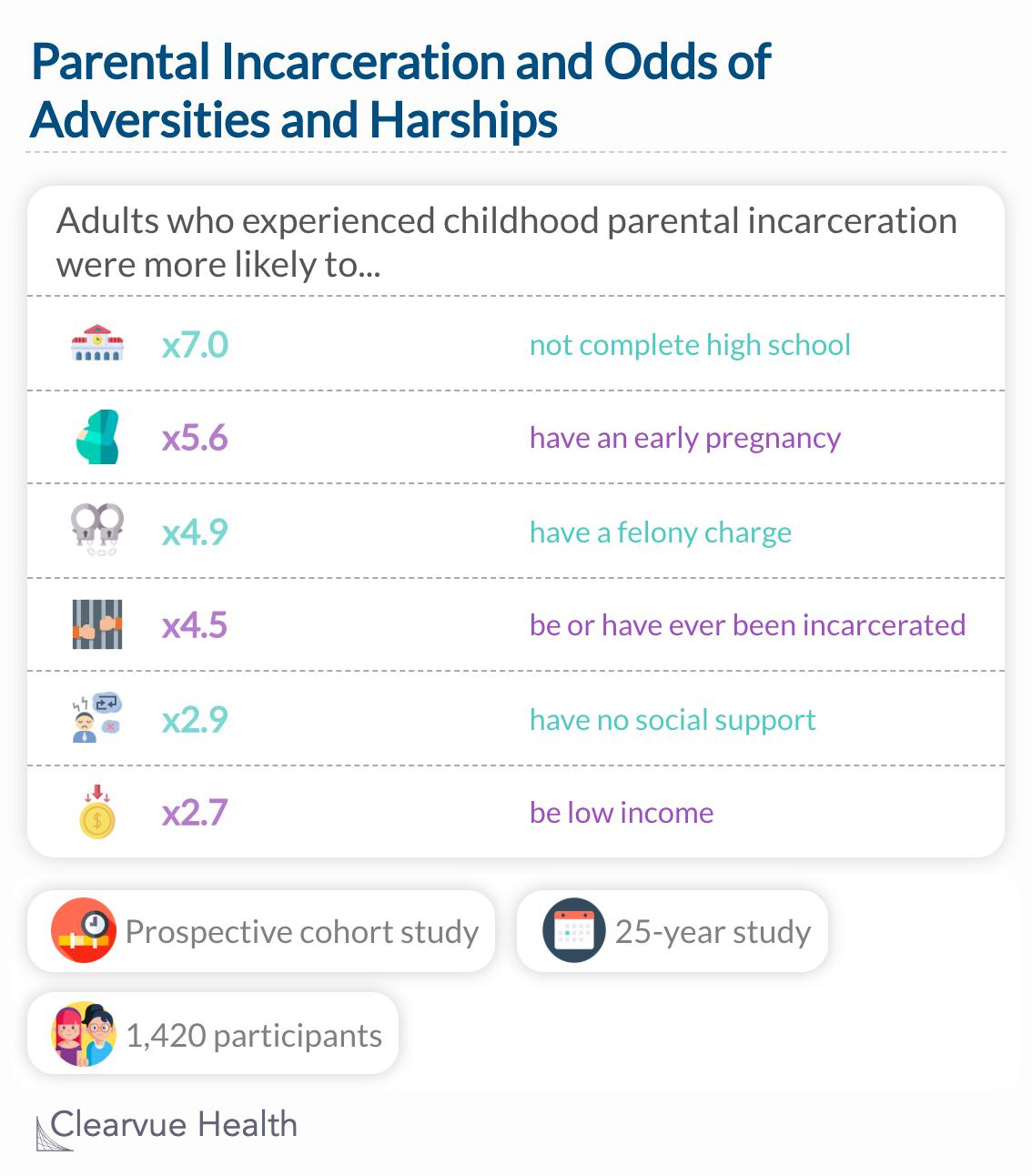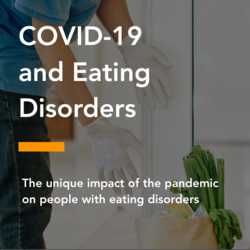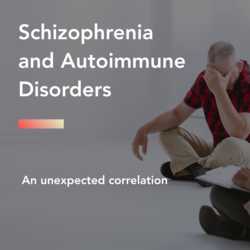Health and parental incarceration: Physical and mental health outcomes for young adults
There are many childhood traumas that can result in poor physical and mental health outcomes later in life. Whether or not the child witnessed any crimes, the loss of a mother or father to the criminal justice system completely interrupts their life. There is one less parental figure to guide, advise, watch over, and financially support them. Quite a large body of research exists that outlines the health effects of parental incarceration. The range of health conditions linked to parental incarceration is striking, affecting physiological, emotional, and social development.
Study 1
Researchers from the CDC looked at data from the National Longitudinal Study of Adolescent Health. This study included 14,800 participants in grades 7 through 12. The survey asked participants if a parent had ever been in prison, about 13% of which said yes. They were also asked about medical conditions such as epilepsy, depression, and asthma. Lastly, they reported on their family structure and socioeconomic status. Researchers took all this information compared participants with and without incarcerated parents.
Positive, significant associations were found between parental
incarceration and 8 of 16 health problems (depression, posttraumatic
stress disorder, anxiety, cholesterol, asthma, migraines, HIV/AIDS, and
fair/poor health) in adjusted logistic regression models.
Source: The impact of parental incarceration on the physical and mental health of young adults
When asked about parental incarceration status, approximately 87% of young adults said neither parent had been to prison, 10% said their father had been to prison, 2% said their mother had been to prison, and under 1% had said both parents had been to prison. For this reason, we will use the father-only data to represent the majority of children with parental incarceration.
The analysis found 8 health problems that were significantly associated with parental incarceration: depression, posttraumatic stress disorder, anxiety, high cholesterol, asthma, migraines, HIV/AIDS, and overall poor health. Young adults who experienced parental incarceration had increased odds of developing each of these health conditions.
Positive, significant associations were found between parental
incarceration and 8 of 16 health problems (depression, posttraumatic
stress disorder, anxiety, cholesterol, asthma, migraines, HIV/AIDS, and
fair/poor health) in adjusted logistic regression models.
Study 2
The next study looked specifically at the psychiatric outcomes and life circumstances of young adults with parental incarceration. Researchers analyzed data given by 1,420 participants from the Great Smoky Mountains Study. Data collection started 25 years before this analysis. They measured health outcomes in both childhood and adulthood.
Parental incarceration was associated with higher prevalence of childhood psychiatric diagnoses (eg, any depressive diagnosis: adjusted odds ratio [aOR], 2.5; 95% CI, 1.3-4.6; P = .006; attention-deficit/hyperactivity disorder: aOR, 2.3; 95% CI, 1.0-5.5; P = .06; and conduct disorder: aOR, 2.5; 95% CI, 1.4-4.3; P = .001).
Source: Association of Parental Incarceration With Psychiatric and Functional Outcomes of Young Adults
Parental incarceration remained associated with increased odds of having an adult anxiety disorder (aOR, 1.7; 95% CI, 1.0-3.0; P = .04), having an illicit drug use disorder (aOR, 6.6; 95% CI, 2.6-17.0; P < .001), having a felony charge (aOR, 3.4; 95% CI, 1.8-6.5; P < .001), incarceration (aOR, 2.8; 95% CI, 1.4-5.4; P = .003), not completing high school (aOR, 4.4; 95% CI, 2.2-8.8; P < .001), early parenthood (aOR, 1.7; 95% CI, 1.0-3.0; P = .04), and being socially isolated (aOR, 2.2; 95% CI, 1.2-4.0; P = .009).
Both in childhood and adulthood, the offspring of incarcerated parents had higher odds of psychiatric disorders. In childhood, this population is at increased odds of disorders associated with antisocial behavior such as to conduct disorder and oppositional defiant disorder. In adulthood, their odds of illicit drug abuse was much greater than the general population. These psychiatric disorders are detrimental to the development and success of this group.
Parental incarceration remained associated with increased odds of having having a felony charge (aOR, 3.4; 95% CI, 1.8-6.5; P < .001), incarceration (aOR, 2.8; 95% CI, 1.4-5.4; P = .003), not completing high school (aOR, 4.4; 95% CI, 2.2-8.8; P < .001), early parenthood (aOR, 1.7; 95% CI, 1.0-3.0; P = .04), and being socially isolated (aOR, 2.2; 95% CI, 1.2-4.0; P = .009)
In adulthood, children with parental incarceration are less likely to complete high school and are more likely to have an early pregnancy, a felony, and other hardships that impede their emotional and social well-being. The increased odds of psychiatric disorders may contribute to these hardships, but there are other factors to consider too. Child adversities such as low family economic status, family instability, maltreatment, and family dysfunction are likely to influence their odds of hardship in adulthood.
Final thoughts
Each of these studies examined young adults, most likely because health conditions, particularly mental health conditions, begin to appear at that stage in life. Young adulthood is one of the most transitional and challenging times in a person's life. Health behaviors that result from childhood trauma are often unseen until this period. Lastly, these studies do not tell us the exact ratio of exposures that lead to poor health outcomes. There are a lot of factors at play in this association. For example, we do not have a breakdown of the exact crimes committed by the participant's parents.
